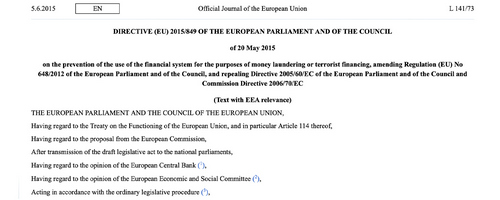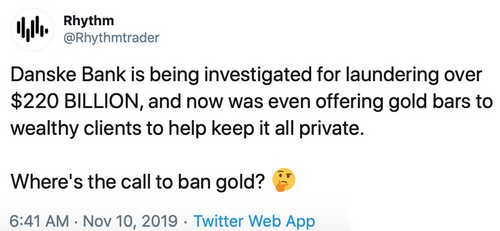Stephen Richardson, Fireblocks’ vice president of product strategy in Singapore, and Amy Zhang, its vice president of sales in Hong Kong, will be responsible for customer service and onboarding institutions and exchanges.
Fireblocks, a platform that secures digital assets in transit, is expanding its business in Asia with two new offices, one in Hong Kong, the other in Singapore.
The New York-based firm now provides its secure transfer services to major Asian crypto firms including trading platform Amber, investment firm Blitz Group and hedge fund Three Arrow Capital, Michael Shaulov, CEO and co-founder of Fireblocks, told CoinDesk.
“With the region’s unique ecosystem of trading, payment and exchange activities, there has been a surge in demand in Asia”, Shaulov said.
Founded in 2018, the firm received $16 million in funding last June through a Series A round from Cyberstarts, Tenaya Capital and Eight Roads, the proprietary investment arm of Fidelity International.
According to Fireblocks, it has sold its services to more than 22 different exchanges for handling 180 different cryptocurrencies. Clients include B2C2, Celsius, Genesis Global Trading, Galaxy Digital, Woorton, Dunamis, GSR, Blockfills, LGO and Nexo. Genesis Global Trading, like CoinDesk, is owned by Digital Currency Group.
The firm claims it has protected $30 billion in digital asset transfers to date with its patented multi-party computation (MPC) technology. MPC ensures there is no single point of failure and is compatible with a wider range of cryptocurrency protocols than multi-signature technology, according to Fireblocks.
Another advantage of its MPC technology is its low cost, the firm said.
“Multiple wallets based on multi-sig are associated with higher fees than regular, single address transactions”, Shaulov said. “MPC-based wallets, however, are represented on the blockchain as a single wallet address, with the actual distributed signature computed outside of the blockchain.”

“This translates into having the lowest fees possible for the transaction and can be critical when issuing hundreds of transactions per day, especially in business-to-consumer applications”, he added.
The firm calls its service a «hot vault,» implying that it combines the convenience of so-called hot wallets connected to the internet with the security of offline cold storage.
The platform passed an audit by consulting firm EY in December. It indicates the firm complies with industry data security standards and could serve traditional financial institutions.
Fidelity-Backed Fireblocks in Talks With Potential Wall Street Clients Following EY Accreditation
Announced today, the «Big Four» financial services firm awarded Fidelity-backed Fireblocks a Service Organization Control (SOC) 2 Type II Certification following a six-month security audit into how the company manages, processes, and protects customer data.
Fireblocks describes itself as an enterprise-grade solution for blockchain-based transactions. Effectively, it provides a service allowing institutions to securely move digital assets.
The platform, which came out of stealth in June, currently supports 22 different exchanges and 180 different cryptocurrencies. Existing clients include Galaxy Digital and Genesis Global Trading.
A month after launch, the firm announced a $16 million Series A funding round with Investors including Eight Roads – the investment arm of Fidelity International.
To receive a SOC 2 Type II certification, auditors must review a company’s cyber-security controls and recovery protocols, as well as how a company encrypts its users’ data.
EY’s report said Fireblocks either met or exceeded the SOC 2 Type II criteria. The auditor will carry out reviews on a yearly basis to ensure Fireblocks continues to comply with security standards.
Commonplace in traditional finance, few cryptocurrency businesses have this accreditation, according to Michael Shaulov, Fireblocks CEO and co-founder. Fireblocks can now court clients from outside crypto, including financial institutions dipping their toes into the asset class.
«It is a required accreditation for any service provider in the traditional finance space because big banks and financial institutions will refuse to engage with a SaaS or PaaS provider that doesn’t have SOC 2 Type II,» Shaulov told CoinDesk. «The SOC 2 will allow us to extend our services to the bigger set of financial players like Wall Street banks and asset managers that are getting involved with digital assets.»
Shaulov confirmed to CoinDesk that Fireblocks was already talking to Wall Street firms.
Fireblocks allows users to set their own customized security parameters for any type of transaction. This may include additional layers of security – two-factor authentication, biometrics and passwords – for third-party transactions. In comparison, inter-company transactions, or those with regular clients, might have slightly less stringent security checks.
“Our business model involves a high degree of complexity – we have to remain meticulous despite the frequency and speed at which we’re moving assets”, said Idan Ofrat, CTO and the second co-founder of the company. “Since launching in June, we’ve secured more than $9 billion in digital asset transfers. This requires strict compliance with guidelines that span over technology architecture, development, and continuous operations of our platform.”


